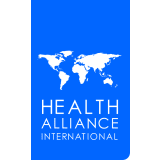
They partner with governments in developing countries to strengthen public-sector health care systems. They believe that all people deserve the chance to live a healthy life. With the right resources and development, public-sector health systems are the most effective way to provide primary health care that gives people that chance.
Their vision is a just world that promotes health and well-being, including universal access to quality health care.
Their mission is to promote policies and support programs that strengthen government primary health care and foster social, economic and health equity for all.
WHAT THEY DO
In more than 20 years of partnering with governments to improve public-sector health systems, our approach has always been to look for creative ways to solve problems and build capacity. From helping to fund the construction of a new hospital, to consulting on national protocols for prenatal care for women with HIV, we help Ministries of Health focus on their priorities and achieve their goals.
They currently work in four countries on a variety of projects related to strengthening primary health care.
-Cote d'Ivoire
-Mozambique
-Sudan
-Timor-Leste
Their focus areas are:
-Primary Health Care
-Health Systems
-Leadership and Management
-HIV/AIDS
-Reproductive Health
Their main areas of work are:
Integrated Health Services
They help governments assess and plan for the introduction and expansion of key health services into existing primary health care services. They approach is to build up these targeted services in the context of the overall health system, so that meeting disease-specific goals benefits other services as well. For example, we often focus on HIV/AIDS and maternal and child health services. When health workers are more knowledgeable on patient triage and referral, patient record systems are improved, and pharmacy and laboratory procurement systems are streamlined, all for HIV services, the system can also better manage other types of infectious disease testing and treatment.
Leadership and Management
There is much more to a well-functioning health system than just clinics and doctors. Health system managers, from the local or district level all the way up to the national Ministry of Health, need to know what resources are available, what communities need, how to distribute those resources, and whether services are working and people are living healthier lives. They work with all levels of health system management to coach and mentor staff, develop useful data and tracking systems, and improve leadership skills. They support health workforce policies that develop and retain quality staff and managers, both in the field and as part of their advocacy efforts.
Health Systems Research
They conduct assessments and program monitoring and evaluation as part of our work with ministries of health. They also train and support Ministry of Health staff to conduct targeted research, sometimes called “implementation science” or "operations research" that explores how health services are delivered and how they can be improved. Their goal is to make sure that innovations in global health can be brought from theory into practice, and reach the people who need them.
Community Engagement
An important part of strengthening the health system is making sure it is responsive to people's needs, and that people have confidence in the care they will receive. They partner with community-based organizations in-country to raise awareness about health issues, and encourage connections between communities and the health system.
Advocacy
They like to call this "advancing global health." New technologies and innovations hold promise for some of the greatest challenges in global health today, yet too often this promise isn't translated into actual prevention, diagnosis or treatment that leads to healthier lives for people around the world. There are reasons for this disconnect--reasons that we all collectively can change. For instance, we know from our in-country experience that delivering quality health services requires strong public-sector health systems that reach the poor. We also advocate on bigger-picture issues that impact global health, such as international lending policies, foreign aid practices, and the impact of war on public health.


